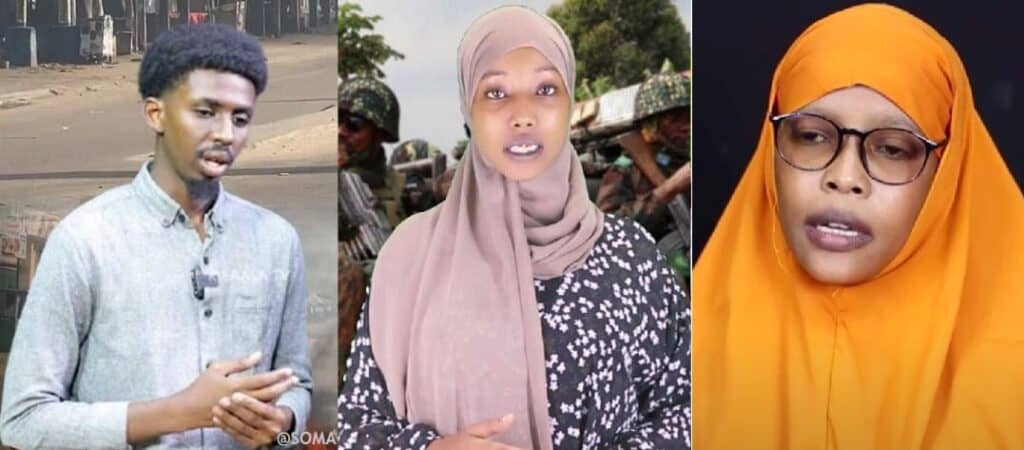Mogadishu (SOMA) – This year, Somalia marks the International Day for Universal Access to Information against a grim backdrop: the country still lacks an access-to-information law that guarantees citizens and the press the legal right to obtain government information. While many nations around the world proudly celebrate measurable progress in transparency and accountability, Somalia’s media continues to face mounting threats, intimidation, and danger.
The absence of an access-to-information law has created a dangerous legal vacuum, one that allows security forces and state institutions to routinely obstruct independent journalists in their work of informing the public. This vacuum has led to a climate where arrests, torture, and live gunfire against reporters are increasingly common. Many journalists are forced into self-censorship, confined within their offices, unable to freely cover events on the ground. As a result, Somali citizens are denied the right to reliable, timely, and accurate news about their own country.
“Somalia lacks an access-to-information law, which could guarantee journalists free access to inform the public. It is a right, not a privilege,” said SOMA Secretary General Mohamed Abdiwahab.
“We call on the Somali government to respect press freedom, enact an access-to-information law, and put an end to the daily harassment and abuse of journalists by its security forces,” he added.
On August 14, 2025, Somalia’s media community and public were shaken by the brutal mistreatment of journalist Abukar Keynan of Risaala TV in Mogadishu’s Hodan district. Keynan was covering the forced eviction of nearly 1,000 families from the Horseed neighborhood when government troops targeted him and his cameraman.
“They beat me with the butt of a rifle, slapped and kicked me, stripped off my clothes, and blindfolded me,” Keynan recalled. “I was lying on the ground as live bullets were fired around me.”
While on the ground, soldiers lashed him with electric cables, compounding his injuries. “My lips were swollen and bleeding. The wounds on my face speak for themselves. I endured torture and abuse that cannot be denied.”
After an hour in brutal custody, Keynan was released, but only after soldiers erased all his footage. No accountability followed. His ordeal revealed not just physical abuse, but the impunity with which security forces act against journalists in Somalia.
In January 2025, Shukri Baryare, a reporter for Radio Hiiraan Weyne, narrowly escaped death when gunfire was twice directed at her while she was recording a feature near Beledweyne Hospital. Though she was not physically injured, the psychological toll was severe.
Her program, which highlighted the daily struggles of street vendors, was silenced after the attacks. “I was directly targeted with live bullets while carrying out my professional duties,” Shukri said. “It left me traumatized and uncertain about my future in journalism.” The fear forced her to cancel all outdoor reporting, silencing stories that gave voice to ordinary Somalis.
In March 2025, Aniso Sheikh Mohamed of Himilo Somali TV attempted to cover a women-led protest in Mogadishu. The demonstration, organized in response to the rape of a Somali girl in Kenya, was deliberately suppressed.
Security forces from both the police and intelligence services blocked Aniso, confiscated her camera, and detained her cameraman. When she tried to film on her phone, it too was seized. She was held for hours in a government vehicle, and upon release, all her recordings had been erased.
“I was the only journalist willing to amplify the voices of protesting women,” Aniso explained. “But I was silenced. Everything I had recorded was deleted.”
A Pattern of Suppression
The ordeals of Abukar Keynan, Shukri Baryare, and Aniso Sheikh Mohamed reflect the grim reality for Somali journalists: one was subjected to torture and visible injury, another was targeted with live ammunition, and a third was obstructed from broadcasting women’s voices, with her equipment forcibly taken.
These are not isolated incidents. They paint a broader picture of systematic suppression — a deliberate effort to silence the truth and deny Somali citizens access to critical information.
As the world celebrates the International Day for Universal Access to Information, Somalia stands as a glaring reminder of what happens when laws are absent, institutions fail, and impunity reigns.
For Somali journalists, pursuing the truth is not just a profession — it is an act of courage that comes with the constant threat of violence, harassment, and censorship by authorities, freelance militias, and terrorists.
The international community, human rights defenders, and advocates of press freedom must not look away. Silence emboldens repression. Somalia urgently needs a binding access-to-information law, accountability for attacks against the press, and genuine protection for journalists who risk their lives to serve the public.
Without these, the voices of Somali citizens will remain muted, and the truth will continue to be buried under fear and intimidation.

